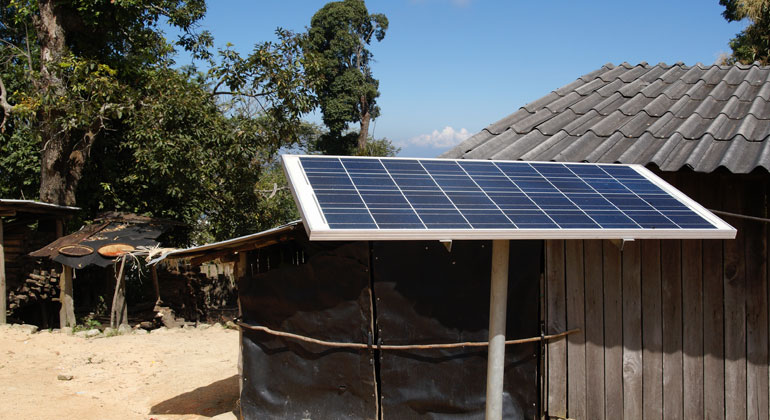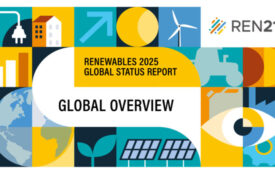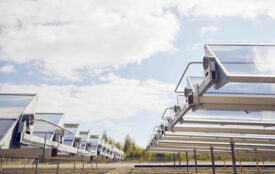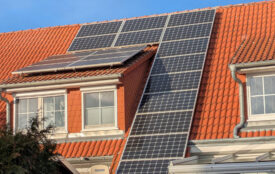Solar villages: a successful model for promoting local solar companies
Which concept can be used to successfully build up solar companies? The Stiftung Solarenergie – Solar Energy Foundation has been active in Africa for 15 years. In our experience, the combination of theory and practice delivers the best results in empowerment of local entrepreneurs.
That is why we always use our non-profit solar projects for the practical training of entrepreneurs and their employees. Above all, our solar village projects have proven to be an excellent opportunity for sustainable support of local entrepreneurs.
What is a solar village?
In order to make a lasting contribution to poverty reduction in developing countries, we are pursuing a concentrated concept for village development: supplying an entire village with solar energy.
The Stiftung Solarenergie provides all households with a basic power supply with solar energy at a subsidised price: it consists of 2 LED lamps and the possibility of charging mobile phones. The price to be paid by households is based on what the poorest families in the village can pay. This is to ensure that each family receives a basic power supply.
The solar system is paid in monthly instalments over a period of 6 to 12 months. After completion of the installment payments, the solar systems become the property of the families.
In many solar villages, in addition to households, public buildings (schools, health stations, churches) also received solar energy. Solar water pumps or street lamps were also installed.
Training for local entrepreneurs and their employees
For installation, end-user training and maintenance, we rely exclusively on local solar companies. Moreover: right from the start, the company implementing the project is supported by another local solar company.
In order to successfully implement the solar village project, the employees of the partner company must develop and practice various skills. These include, for example:
- Internal and external communication
- Training for end-users
- Technical service (installation and service)
- Customer support
- Management of monthly payments
- Financial management: accounting, reports
- Business and project management
- Employee motivation and leadership
The solar village is thus a unique instrument for training the personnel of a solar company.
After the successful completion of the solar village project, the added value for solar companies is enormous:
- Reference project for other partners and/or investors
- Market entry in a region
- Increased awareness of the company
- New customers in the solar village for larger products
- New customers outside the solar village due to known reputation
Sendea Network of entrepreneurs
Following the successful implementation of the Solar Village project, the entrepreneur will also be admitted to the Sendea network: In this network of young solar companies we promote the exchange of experience among each other. Because further training must continue in everyday life.
The transfer of information and experience from and for everyday business life is important for the stable development of small businesses. In mutual exchange, the consciousness is created that it is not necessary to act as a lone warrior. Problems can be solved together, experiences exchanged, orders combined and personnel trained together.
Since 2005, a total of 12 solar villages have been set up in Ethiopia, Uganda, Kenya, Cambodia and the Philippines. Further solar villages are already in preparation.








